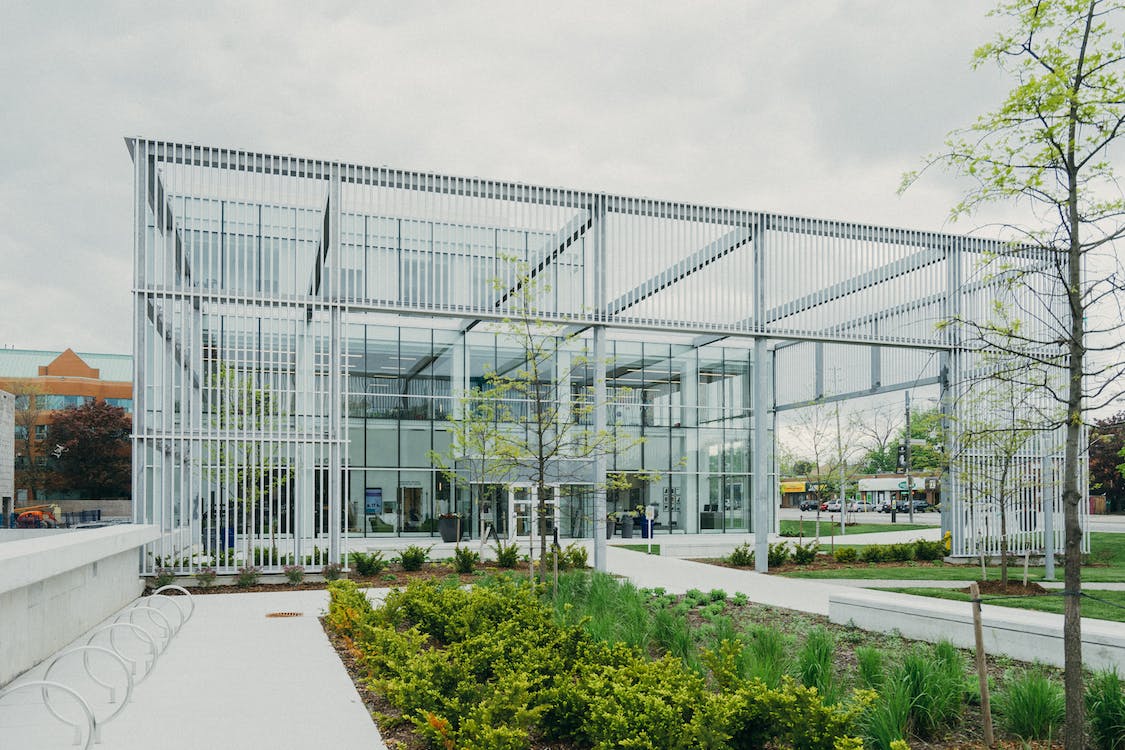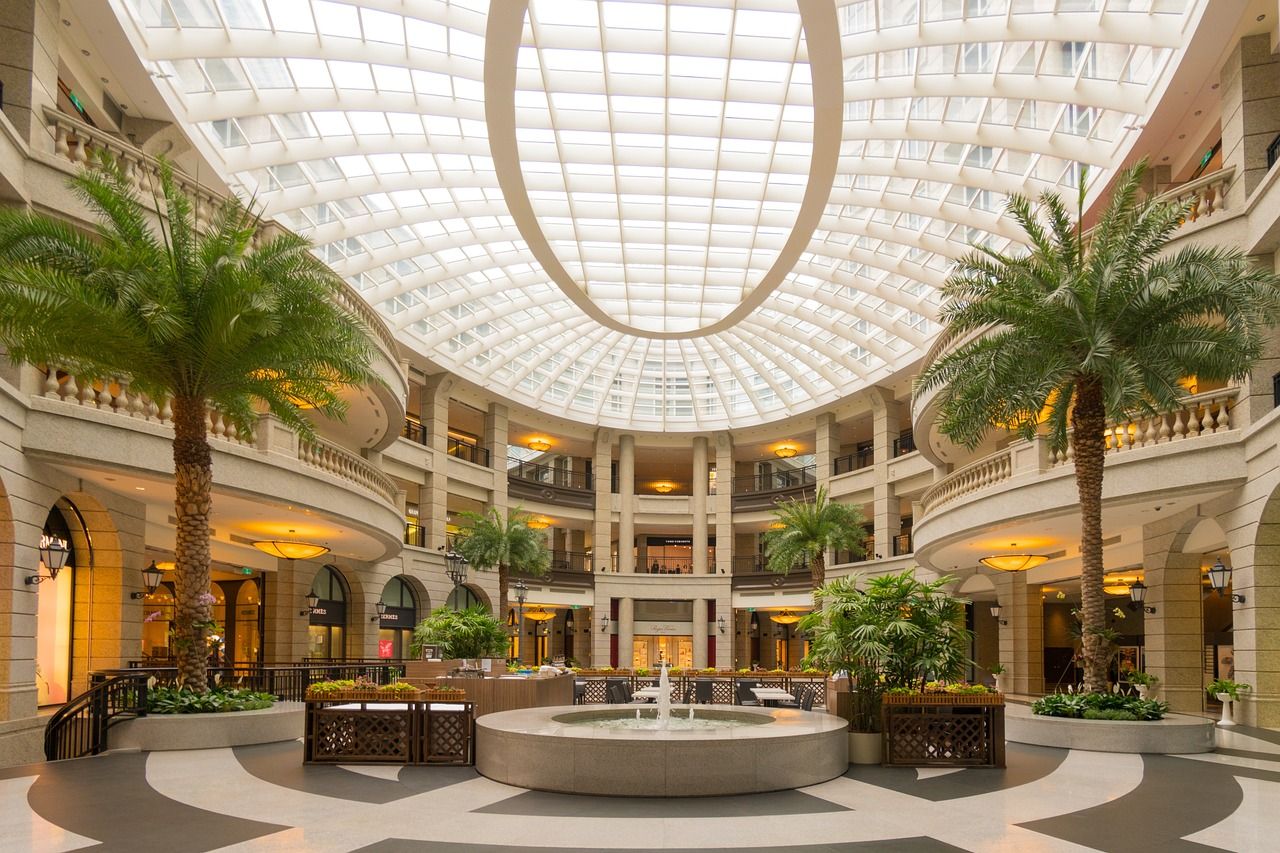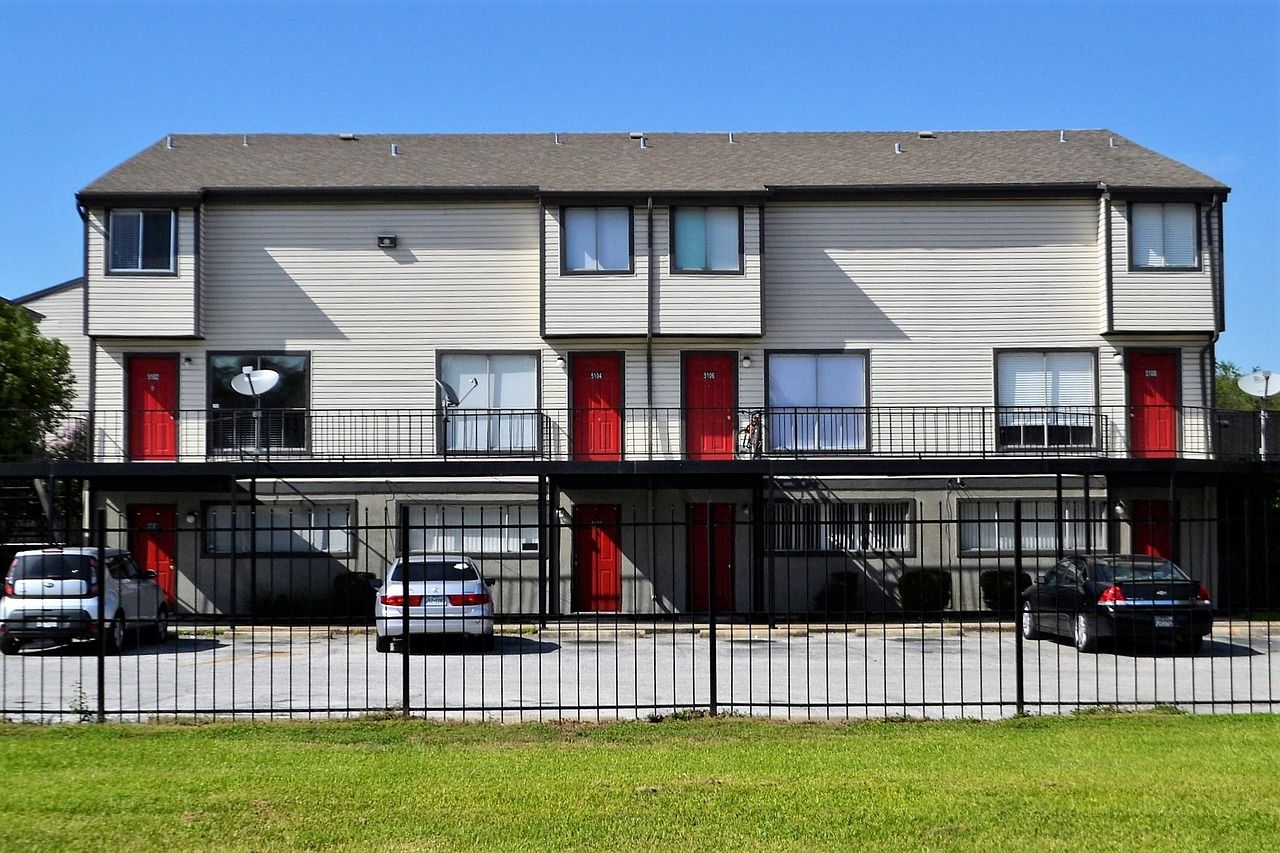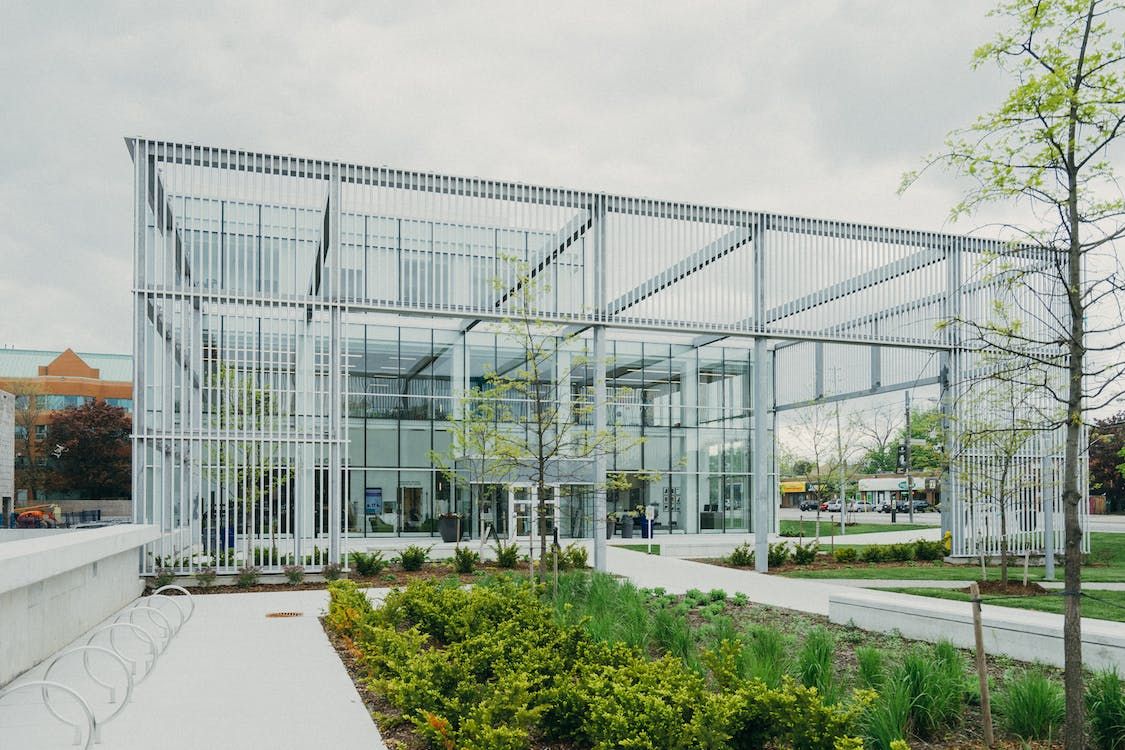Top 10 Commercial Real Estate Trends That You Need to Know

The commercial real estate industry is constantly evolving, and is continuously shaped by various economic, social and technological factors. Staying updated on the latest trends is essential for investors, developers and professionals in the industry. From shifting tenant preferences to advancements in technology, understanding these trends can provide valuable insights and opportunities.
In this blog post, we will explore the current trends in commercial real estate that are reshaping the landscape. Whether you are an investor looking for the best market to invest in or a business owner seeking the ideal location for your venture, knowledge of these trends will help you make informed decisions and navigate the dynamic world of commercial real estate.
Key Takeaways
- real estate refers to income-generating properties that are used for business purposes
- Top 10 commercial real estate trends that you need to know are · 1. Incorporation of proptech in CRE 2. Multifamily properties 3. ESG (Environmental, Social and Governance) as an important factor for investors in commercial real estate 4. Rise of rental rates for commercial properties 5. More demand for industrial real estate due to e-commerce 6. Remote work impact 7. Flexibility and co-working spaces 8. Rise of alternative real estate assets 9. Sustainability and green building certifications 10. Increase in investment in the commercial real estate sector
- Before getting into commercial real estate investing, be sure to consult a financial advisor or real estate professional
Disclaimer
The contents of this article are for educational purposes only. They are not intended to be a source of professional financial advice. You will find experts on financial planning, financial management, and real estate here. More on disclaimers here.
What is Commercial Real Estate?

Commercial real estate refers to properties used for business purposes, such as office buildings, retail centers, industrial warehouses and multifamily residential properties with five or more units.
It encompasses properties that are primarily income-generating and are leased or sold to businesses or individuals for commercial use.
10 Commercial Real Estate Trends in 2023
1. Incorporation of Proptech in CRE
One of the most prominent emerging trends in commercial real estate (CRE) is the incorporation of technology, often referred to as Proptech (property technology). Proptech encompasses various technological innovations and applications that are transforming the way commercial properties are managed, operated and experienced.
Smart buildings equipped with advanced systems and sensors are enhancing energy efficiency, security and tenant comfort. On the other hand, data analytics tools are providing valuable insights for decision-making, helping investors and property managers make informed choices. Virtual reality (VR) and augmented reality (AR) technologies are transforming property showcasing and marketing, offering immersive experiences for potential tenants and investors.
2. Multifamily properties

Currently, multifamily properties are among the highest performing real estate assets. It is reported that in 2018, there were 56.15 million multifamily homes in America and this number is set to reach 155.25 million by 2023.
They have emerged as a prominent trend in commercial real estate, driven by evolving lifestyle preferences and shifting demographics. The demand for rental housing, coupled with the desire for urban living, has fueled the growth of multifamily developments.
These properties offer a range of housing options, from apartment complexes to townhouses, accommodating diverse tenant needs. Investors are attracted to multifamily properties due to their potential for steady rental income, long-term appreciation and portfolio diversification.
3. ESG (Environmental, Social, and Governance) as an Important Factor For Investors in Commercial Real Estate
ESG factors have become a prominent consideration in commercial real estate, with investors, stakeholders and commercial real estate firms recognizing the importance of environmental sustainability, social impact and strong governance practices.
In response to increasing concerns about climate change and social responsibility, CRE stakeholders are incorporating ESG considerations into their investment decisions and property management strategies. This trend includes implementing energy-efficient building designs, utilizing renewable energy sources, adopting sustainable construction materials and promoting social initiatives such as community engagement and diversity.
Investors are increasingly prioritizing properties with strong ESG credentials, as they are seen as more resilient, attractive to tenants and aligned with long-term sustainability goals.
4. Rise of Rental rates for Commercial Properties
One notable trend in commercial real estate is the upward trajectory of rental rates for commercial properties. Factors such as increasing demand, limited supply and favorable economic conditions have contributed to this rise.
Growing businesses, expanding industries and the rise of e-commerce have created a greater need for commercial spaces, including office buildings, retail centers and industrial warehouses. Additionally, the tightening of market conditions, coupled with inflationary pressures, has resulted in landlords commanding higher rental prices. As a result, commercial property owners are experiencing increased cash flow and potential returns on their investments.
However, rising rental rates can also pose challenges for tenants, especially small businesses and startups, who may face affordability issues. Monitoring rental rate trends and evaluating market dynamics is crucial for both investors and tenants to make informed decisions in the evolving commercial real estate landscape.
5. More Demand for Industrial Real Estate Due to E-commerce
The rapid growth of e-commerce has significantly impacted the commercial real estate landscape, with a notable increase in demand for industrial properties. As online shopping becomes increasingly popular, companies require efficient warehousing, distribution and fulfillment centers to meet consumer expectations for fast and reliable delivery.
This surge in demand for industrial real estate is driven by the need for strategically located facilities that can accommodate inventory storage, order processing and last-mile logistics. Industrial properties, including logistics hubs, fulfillment centers and e-commerce warehouses, have become highly sought after by investors seeking to capitalize on the e-commerce boom. This trend is expected to continue as e-commerce continues to evolve, making industrial real estate a compelling investment opportunity in the commercial real estate market.
6. Remote Work Impact
The rise of remote work has had a profound effect on the commercial real estate sector. As more companies embrace flexible work arrangements, the demand for traditional office spaces is undergoing a transformation. Remote work has resulted in reduced office space requirements as employees no longer need dedicated workstations on a daily basis. Instead, companies are exploring alternative workplace strategies such as hot-desking, co-working spaces and flexible office solutions.
This shift in office utilization patterns has prompted commercial real estate stakeholders to reimagine office spaces, focusing on creating collaborative environments, integrating technology and providing amenities that foster employee well-being and productivity. While remote work poses challenges for the traditional office real estate market, it also opens up opportunities for repurposing underutilized spaces and investing in innovative office concepts that cater to the evolving needs of the workforce.
7. Flexibility and Co-working Spaces
Flexibility and co-working spaces have become increasingly popular in the commercial real estate market, driven by the evolving needs and preferences of businesses and professionals. These spaces offer flexible lease terms, shared amenities and a collaborative environment, catering to the growing demand for agility and adaptability.
Startups, freelancers and even established companies are opting for co-working spaces as they provide cost-effective solutions and foster networking opportunities. Landlords and property owners are responding to this trend by incorporating flexible workspace options into their properties, either through dedicated co-working operators or by creating their own flexible space offerings.
The rise of flexibility and co-working spaces is reshaping the commercial real estate market, providing opportunities for investors and developers to tap into this growing segment and cater to the changing dynamics of the modern workforce.
8. Rise of Alternative Real Estate Assets
The commercial real estate market is witnessing a shift towards alternative real estate assets as investors seek new avenues for diversification and higher returns. These alternative assets include data centers, self-storage facilities, student housing, healthcare properties and senior living communities, among others.
Factors such as changing demographics, technological advancements and evolving consumer behaviors have created unique opportunities in these niche sectors. Alternative real estate assets often offer attractive risk-adjusted returns, long-term stability, and the potential for rental income growth. Institutional investors and private equity firms are increasingly allocating capital to these sectors, recognizing their potential to provide portfolio diversification and exposure to non-traditional asset classes.
As the demand for these alternative assets continues to grow, investors are exploring innovative strategies to capitalize on this emerging trend in commercial real estate.
9. Sustainability and Green Building Certifications
Sustainability and green building certifications are playing an increasingly important role in commercial real estate. With heightened awareness of climate change and the need for environmental stewardship, investors and tenants are prioritizing buildings with sustainable features and green certifications.
Green building practices, such as energy-efficient designs, renewable energy integration, water conservation and waste reduction, not only reduce environmental impact but also offer cost savings and enhanced occupant well-being. Certifications like LEED (Leadership in Energy and Environmental Design) and BREEAM (Building Research Establishment Environmental Assessment Method) provide credibility and recognition for sustainable buildings.
As sustainability continues to gain prominence, commercial real estate stakeholders are incorporating eco-friendly practices into their portfolios to attract environmentally conscious tenants and align with sustainability goals.
10. Increase in Investment in the Commercial Real Estate Sector
Investment in the commercial real estate sector has experienced significant growth as more investors recognize the potential for attractive returns and portfolio diversification. Factors such as low-interest rates, stable rental income and long-term appreciation prospects have made commercial real estate an appealing asset class.
Institutional investors, private equity firms and individual investors are increasing their allocations to commercial properties, including office buildings, retail centers, industrial warehouses and multifamily developments. Additionally, the emergence of real estate investment trusts (REITs) and crowdfunding platforms has made commercial real estate more accessible to a broader range of investors.
This surge in investment activity is driving competition and pushing property prices higher, creating both opportunities and challenges for investors in the commercial real estate market. Overall, the increase in investment in the commercial real estate sector reflects the continued confidence in its potential as a lucrative investment avenue.
What opportunities lie ahead in commercial real estate investing
The future of commercial real estate investing holds promising opportunities for savvy investors. Emerging technologies like Proptech are transforming the industry, offering new ways to enhance property operations, improve tenant experiences, and optimize returns.
If you would like to venture into commercial real estate as an investor, be sure to consult a financial advisor or real estate professional so they can provide you with some valuable insights.
Bay Street Capital Holdings

Bay Street Capital Holdings is a Black-owned independent investment advisory, wealth management and financial planning firm headquartered in Palo Alto, CA. The firm manages portfolios with the goal of maintaining and increasing total assets and income with a high priority on managing total risk and volatility. Although many advisors may focus on maximizing returns, they place a higher priority on managing total risk and volatility.
The firm was founded by William Huston after 13 years of supporting the United States' largest retirement plan ($650B) Thrift Savings Plan. In 2021, he was recognized as Investopedia’s Top 100 Financial Advisors for 2021. In California, only two Black-owned firms out of nineteen firms received this recognition.
In Scottsdale Arizona, Ekenna Anya-Gafu CFP, AAMS is recognized among the Best Financial Advisors for his responsiveness, friendliness, helpfulness and attention to detail. In 2021, Bay Street was selected as a finalist out of over 900 firms across the US in the category of Asset Manager for Corporate Social Responsibility (CSR). Bay Street was founded to advocate for diverse and emerging fund managers and entrepreneurs.
Sources
https://www.jpmorgan.com/commercial-banking/insights/2023-commercial-real-estate-trends
https://www.dealpath.com/blog/commercial-real-estate-trends/
https://www.commercialsearch.com/news/top-10-commercial-real-estate-trends-for-2023/





















